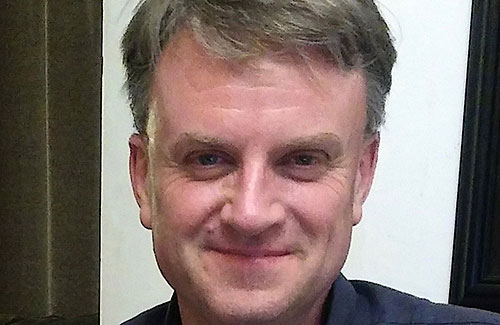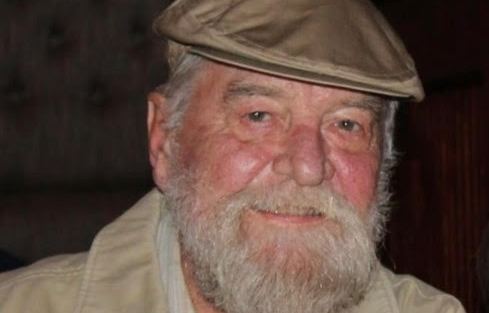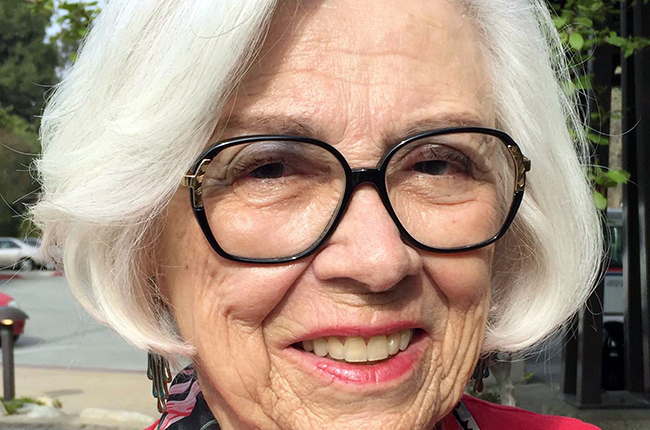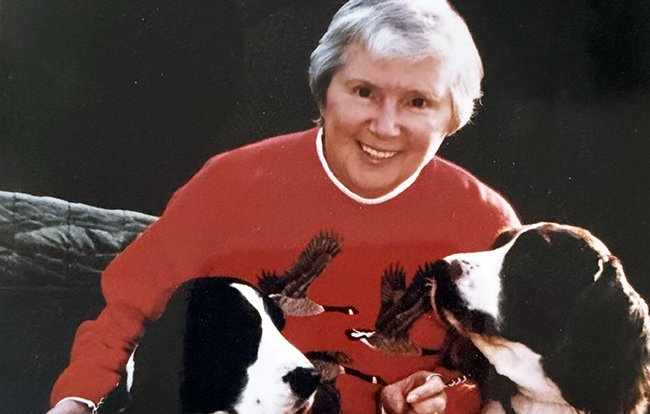Obituary: Jonathan Charles Wright

Esteemed Pomona College professor of biology, violinist, husband, father
Jonathan C. Wright, the William A. Hilton Zoology Professor and Professor of Biology, and former Associate Dean at Pomona College, sustained a major heart attack and died at his home in Claremont on December 16, 2019.
Jonathan, a Claremont resident for 22 years, was born in Hull, England to John and Marjorie Wright. When he was three, the family moved to Eastry, Kent, where his father was teaching at a local college.
He loved to romp in the
After working for a year for the Nature Conservancy Council and Bioscan Ltd., Prof. Wright enjoyed a series of postdoctoral fellowships that provided a wealth of experience with different habitats—from the University of Toronto, to the University of Copenhagen, to McMaster University in Ontario, Canada, and then to the Marine Biological Laboratory in Woods Hole, Massachusetts. He landed his first faculty position at Northern State University in Aberdeen, South Dakota in 1993, and moved to Claremont five years later.
While working at the University of Toronto, Prof. Wright met the woman who became the love of his life, Joanne Han. The two dated for six years, four of them long distance while Ms. Han was studying at the Fashion Institute of Technology in New York. They married in 1997 in Aberdeen, South Dakota, followed by wedding receptions in England.
After moving to Claremont in 1998, they welcomed their son, Jeremy, in January 2000. Their family enjoyed walks in many nature sites of Southern California, and loved being a part of wonderful flora and fauna that Prof. Wright so loved, as well as gardening, drawing, hearing the many free concerts and recitals at the Claremont Colleges, and exploring LA’s music and art world.
He was wholly devoted to his students at Pomona College, twice earning the college’s coveted Wig Distinguished Professor Award for excellence in teaching. Over the years he supervised more than 67 undergraduates in research projects, during the summer months and throughout the school year.
The vast majority of his 40 peer-reviewed scientific publications include undergraduate co-authors—a testament to the high quality of their research experience and his interest in fully engaging them in the science.
He also encouraged his students to present their work at conferences, and mentored his alumni as they settled into graduate training in science, medicine and other fields. Most importantly, he supported all aspects of his students’ lives, welcoming them into his heart and home.
Prof. Wright’s wonder of the natural world was infectious; his students, colleagues and friends all talk about his ability to get them excited about the tiniest, seemingly insignificant creatures around us. His tremendous observational skills led him to discover features of such organisms that went unnoticed by others, such as the lightning speed of tiny mites, which he discovered are among the fastest animals on earth relative to their body size (for an interview regarding that project, see https://tinyurl.com/wfj9cad).
He and his students conducted much of their work at the Bernard Field Station, and he was an active proponent of protecting that precious resource in perpetuity. He also served as the public appointee on the Claremont Hills Conservation Corporation (CHCC), overseeing the city’s management of the Claremont Hills Wilderness Park. His deep commitment to conservation efforts and strategies to stem global warming led him to spend much of his free time engaging others in activities such as watching whale migration, learning about desert ecology, tide pooling, and participating in regional biomonitoring programs of local butterflies.
In recent years, together with colleagues from Pomona, he was granted two Henry David Thoreau grants—one titled “Developing Leaders in Environmental Education and Research: Understanding and Preserving Biodiversity in an Endangered Southern California Ecosystem,” and another, “Educating Future Leaders in Environmental Research: Understanding the Role of Fire in Preserving Biodiversity and Ecosystem Function in an Endangered Southern California Ecosystem.” His work with Claremont Colleges colleagues also brought in funding from the National Science Foundation for research and academic opportunities at the Bernard Field Station.
He especially loved serving as a naturalist guide to Pomona College alumni and their families, on trips to the Inside Passage of Alaska, Baja California and the Gulf of California, the Galapagos Islands, and the Amazon River Headwaters. As the faculty leader on these trips, Prof. Wright would provide lectures and serve as a guide. His popularity inspired many alumni to take multiple trips with him.
On one of the Galapagos trips, he brought his son Jeremy along, and Jeremy—a 13-year-old at the time—quickly distinguished himself as a knowledgeable guide as well.
In 2012 the Pomona College Alumni Association established the “Faculty Alumni Service Award” to recognize Pomona faculty members for their outstanding service to the alumni of the college. Prof. Wright was unanimously selected to be the first faculty member to receive that award.
As an active scholar, he served as an ad hoc reviewer for dozens of scientific journals and was the recipient of numerous grants from the National Science Foundation and private foundations to support his research, and large program grants from foundations like the Howard Hughes Medical Institute and the Sherman Fairchild Foundation to support the general research mission at the Colleges.
Prof. Wright’s colleagues at Pomona College are especially appreciative of his extensive service to their community. In addition to serving as the chair of the biology department in the mid-2000s, he served as Associate Dean of the College for Sponsored Research in the early 2010s. Over the years, he also served on almost every elected committee at the college while maintaining his active research lab and teaching duties. Most recently he was very involved in chairing the Advisory Board of Library Planners for the Claremont Colleges libraries.
In addition to his love of zoology, he had a love of music and was deeply involved in choral and orchestral groups his whole life. At Northern State in Aberdeen, he served as concertmaster of the university orchestra and played violin in a string quartet. Upon moving to Claremont, he found himself in high demand as a violinist.
He frequently performed recitals with pianist Stephan Moss, often joined by cellist Roger Lebow, seeking out and programming little known early 20th century works by Pierne, Ireland, Janáek, Elgar and many others. For nearly 20 years he performed with faculty colleagues Rachel Huang, Cynthia Fogg and Tom Flaherty in Quartet Euphoria, a group dedicated to playing the rarified quartets of Bartok and the late quartets of Beethoven, in addition to other standard repertoire.
He played in most of the Pomona College Orchestra concerts, and in his early days at Pomona, he somehow found time to also sing bass with the Pomona College Choir. As a scientist and practicing musician, Prof. Wright embodied the idea of a liberal arts education, and in that, like in so many other things, he was such a wonderful role model for all.
He is survived by his wife, Joanne Wright and sons Jeremy and Charlie Wright, of Claremont; mother, Marjorie Wright of Eastly, Kent, England; sister, Lysetta Bray, her husband Trevor Bray, and their children Christopher and Natasha; and brother David Wright, his partner Susie, and their daughter Elouise.
Prof. Wright will be honored with a celebration of life at 1 p.m. this Sunday, March 1, at Bridges Hall of Music, 150 E. Fourth St., Claremont, followed by a reception.
Donations may be made in his honor to support the needs of his immediate family at www.pomona.edu/jonathan-wright-fund.








0 Comments